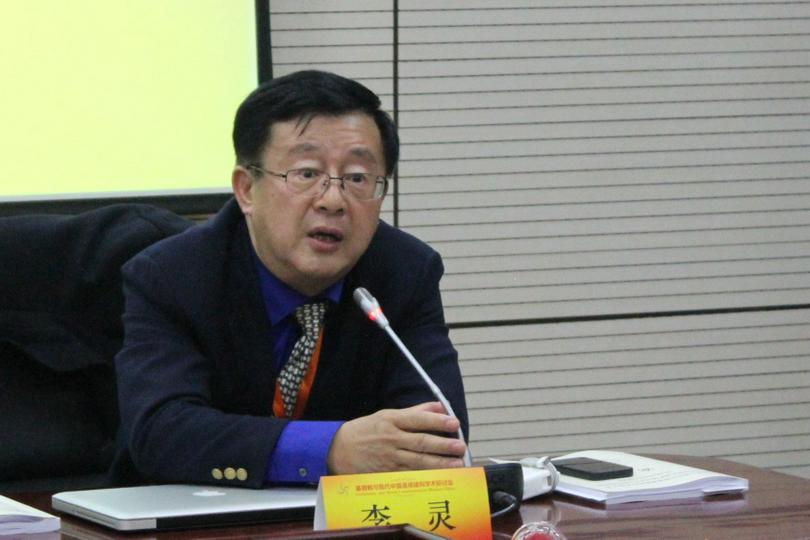On November 8th, at the final discussion held at the Christianity and Moral Construction in Modern China seminar, Li Ling, a scholar, said that tradition, modernity and universality was stressed in moral construction of China and that Christianity plays an important role in it.
Li Ling works for the Christianity and Chinese Research Center and he shared his work entitled “Rethinking of Christianity and Modern Chinese Moral Construction.” Li Ling’s work starts with the Three characteristics of moral construction - tradition, modernity, and universality.
The necessity of tradition. What is "tradition?" Li Ling started with this question. He thinks that people’s understanding of tradition has always been vague. When mentioning tradition, many people just think of restoring ancient ways like wearing long gowns, Mandarin jackets or Han Chinese clothing. People often say “absorb the essence and discard the dross”. Li Ling argued that many people failed to distinguish the difference between traditional essence and dregs.
Li joked and told a story of a man who told him: “It is a pity that he studies Christanity and Chinese. If he only wanted to promote the Confucian culture, concubine would be allowed.” It is to Li Ling’s surprise that the man’s suggestion was to actually take second wife.
Li Ling indicated that religions need freedom and morality needs consciousness, otherwise, they will both be meaningless. The consciousness of morality needs a religious driver.
Li Ling insists just have a lifting effect on tradition. He thinks the largest development of Christianity in China in about 15 years is the promotion of Christians’ quality and ability instead of the number. Christianity has developed from being marginal groups to mainstream.
Modernity demand for moral construction. Li Ling considered that "Modernization" is a goal that has been pursuing in modern China. "Individuality" is an important factor for achieving modernization. Chinese people have poor "individuality," and they would be lost once they leave the group. Christianity can compensate for this.
Christianity emphasizes a personal relationship with God whatever the others’ view. Individual’s should only pay attention to God's view, which laid the foundation for the individual. Christianity also attaches fellowships and churches for realizing the function of group.
Moral reconstruction needs universality. Li Ling said humorously that Chinese people and restaurants exists in places where there is sunshine. The performance of the Chinese people in other countries are related to the local life. If they are located in countries with a better social order such as Europe and the United States, the Chinese will do in Rome as Romans do. However, once the Chinese increased, the rules are in confusion.
Then, Li Ling refers to the universality of values. He thinks that the idea of universality is not terrible, what is terrible is how different values survive harmoniously. He had seen a Muslim slogan in Niujie in xi 'an: “Make all 1.3 billion Chinese Muslims.” At first he was startled when saw the slogan, then think about it as nothing. Such an idea was allowed in any religion, he argued. The Chinese Christians can hope all Chinese people to become Christians or Confucianism and Confucians can hope for Confucianization of China. That is all okay, he notes, the worry is how the different values survive.
The academic seminar on November 7 to 8 at Mingde Building of the RUC (the People's University of China), a total of eight sessions, many scholars such as Wei Dedong, HE Guanghu, Gao shining, Tang Xiao-feng, Zhao Xing-guang, Duan Qi, Ceng Shaokai attended it. This Seminar was hosted by the Philosophy Institution of RUC, the Christianity and China Research Center, the Religion Higher Institutes of RUC, the Religious and Economic Ethics Research Center of RUC, the China Buddhism and Religious Theory Institute of RUC, and the International Buddhist Research Center of RUC.











